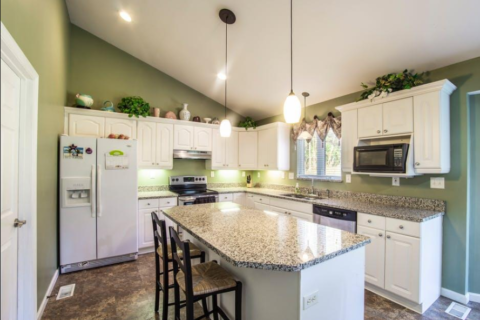Homeowners often wonder if they can apply window tint to their residential windows. The answer is clear: yes, you can put window tint on residential windows. This simple yet effective solution offers a variety of benefits that can enhance the comfort and efficiency of a home.
Window tinting can reduce glare, provide privacy, and block harmful UV rays. Additionally, it helps in maintaining a consistent indoor temperature, thereby potentially lowering energy costs. For those seeking to protect their interior furnishings from fading and enjoy greater comfort, window tinting presents a viable option.
Various types of window tint are available, catering to different needs and preferences. Some are designed for maximum UV protection, while others prioritize privacy or aesthetics. Choosing the right type of tint can transform your living space in more ways than one.
Understanding Residential Window Tinting
Residential window tinting offers several advantages, including energy savings and increased privacy. It is important to choose the right type of window film and to be aware of local regulations.
Benefits of Window Tinting
Window tinting improves energy efficiency by reducing heat gain in the summer and heat loss in the winter. This can lower utility bills.
Privacy is another key benefit. Tints limit the view from outside while maintaining indoor visibility.
Protection from UV rays is also significant, as it helps prevent fading of furniture and floors.
Types of Residential Window Tints
There are several types available:
- Dyed films: These are cost-effective and good for privacy but not as durable.
- Metalized films: Known for strength and heat reduction, but can interfere with electronic devices.
- Ceramic films: Durable and effective at heat reduction without electronic interference.
A window contractor can recommend the best type based on specific needs.
Legal Considerations and Regulations
Legal regulations on window tinting vary by location. Many areas have limits on how dark or reflective window films can be. Homeowners should check local laws to ensure compliance.
Consulting a professional window contractor may be beneficial, as they are familiar with both the technical aspects and legal restrictions involved.
Installation and Maintenance
Proper installation and ongoing maintenance are crucial to ensure the longevity and effectiveness of residential window tint.
Choosing the Right Window Tint
Selecting the appropriate window tint involves considering various factors such as UV protection, heat reduction, and privacy. Homeowners should evaluate the film’s visible light transmission (VLT) percentage, which affects the room’s brightness. Reflective films offer greater heat rejection, while ceramic films provide high clarity and UV protection without significantly altering the window’s appearance.
Consulting window replacement Knoxville TN experts can offer valuable insights into the available types of tints and their respective benefits.
Maintenance and Care for Tinted Windows
Maintaining tinted windows involves regular cleaning with non-abrasive solutions and soft cloths. Avoid using ammonia-based cleaners, which can degrade the tint over time. Inspect the windows periodically for any signs of peeling or damage, addressing issues promptly to extend the lifespan of the tint.
Proper care not only keeps the tint looking new but also maintains its functional benefits such as UV protection and temperature regulation.
When to Consider Window Replacement
Tinting can enhance the performance of older windows, but there are instances where replacement becomes a better option. Windows that are damaged, failing to insulate properly, or nearing the end of their lifespan may benefit more from a full replacement. This will ensure both improved energy efficiency and suitability for new tint applications.
Professionals in areas like window replacement Knoxville TN can provide advice on whether window tinting or replacement would be most beneficial based on the condition and age of the windows.

Daniel J. Morgan is the founder of Invidiata Magazine, a premier publication showcasing luxury living, arts, and culture. With a passion for excellence, Daniel has established the magazine as a beacon of sophistication and refinement, captivating discerning audiences worldwide.





